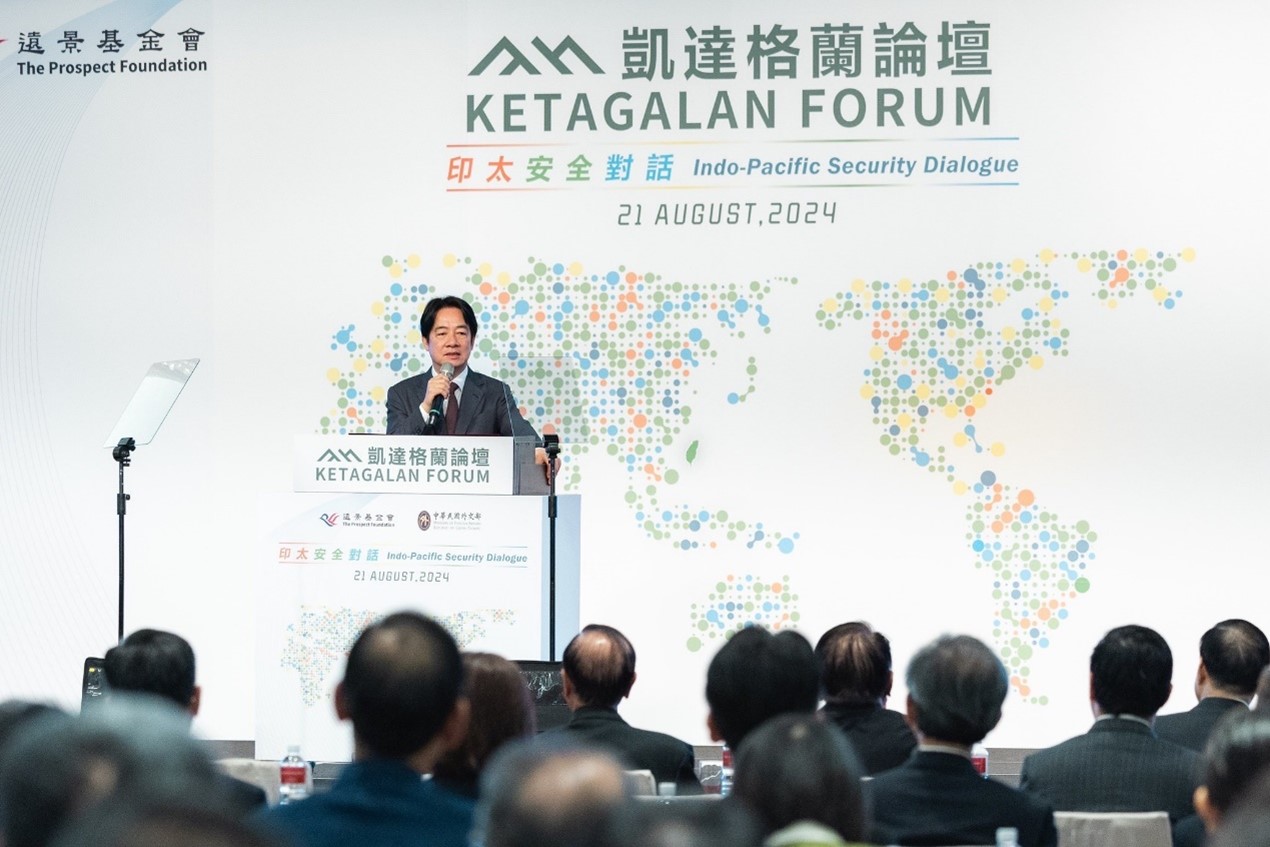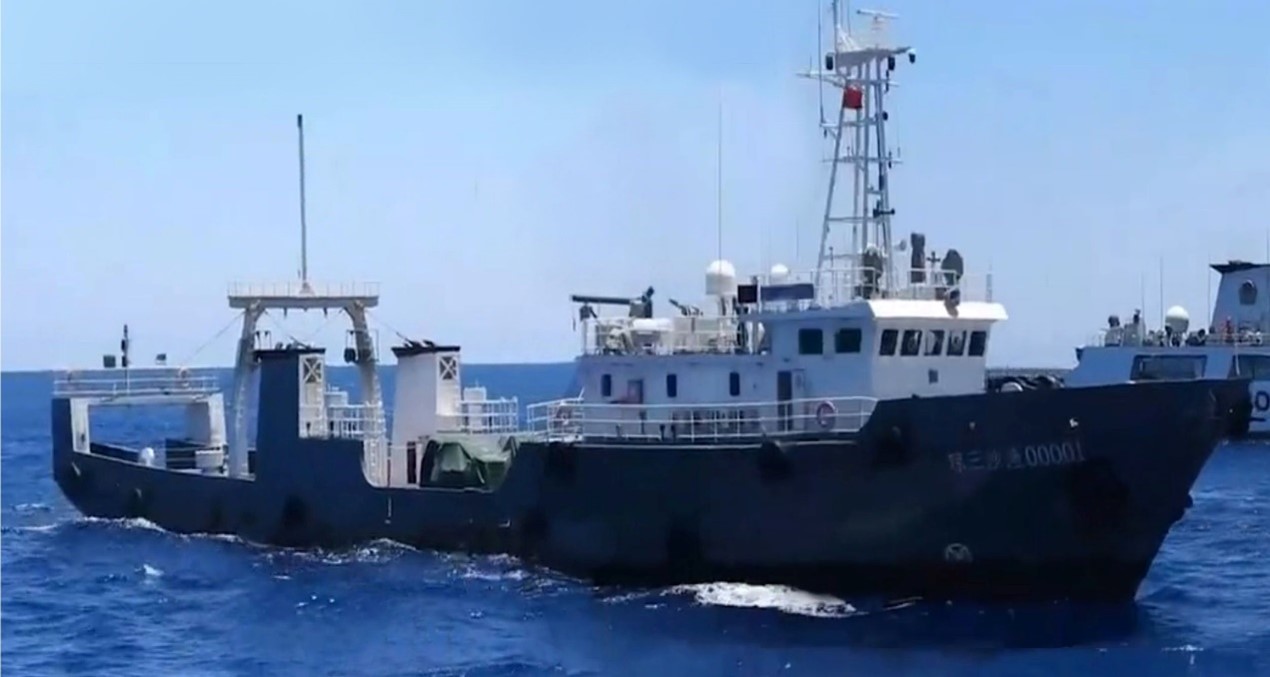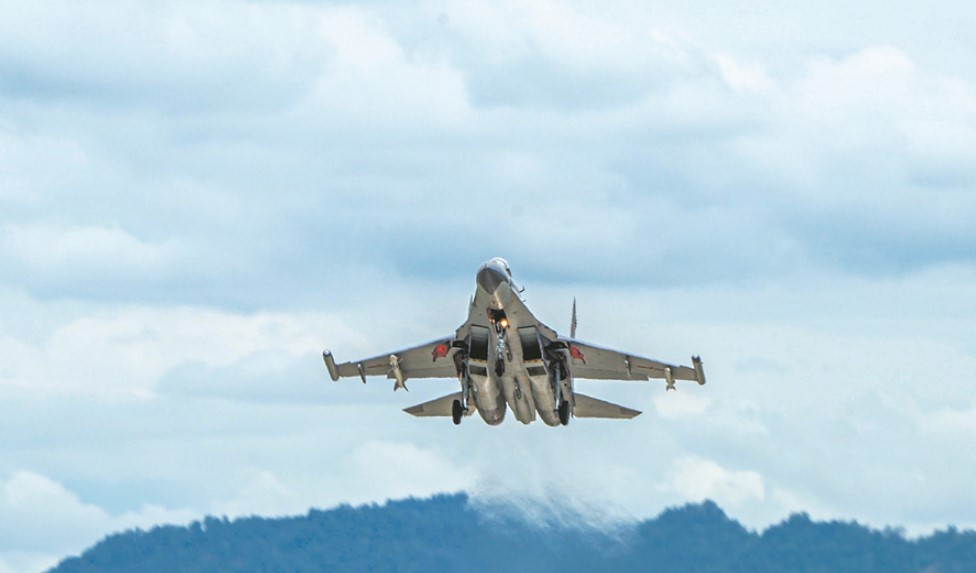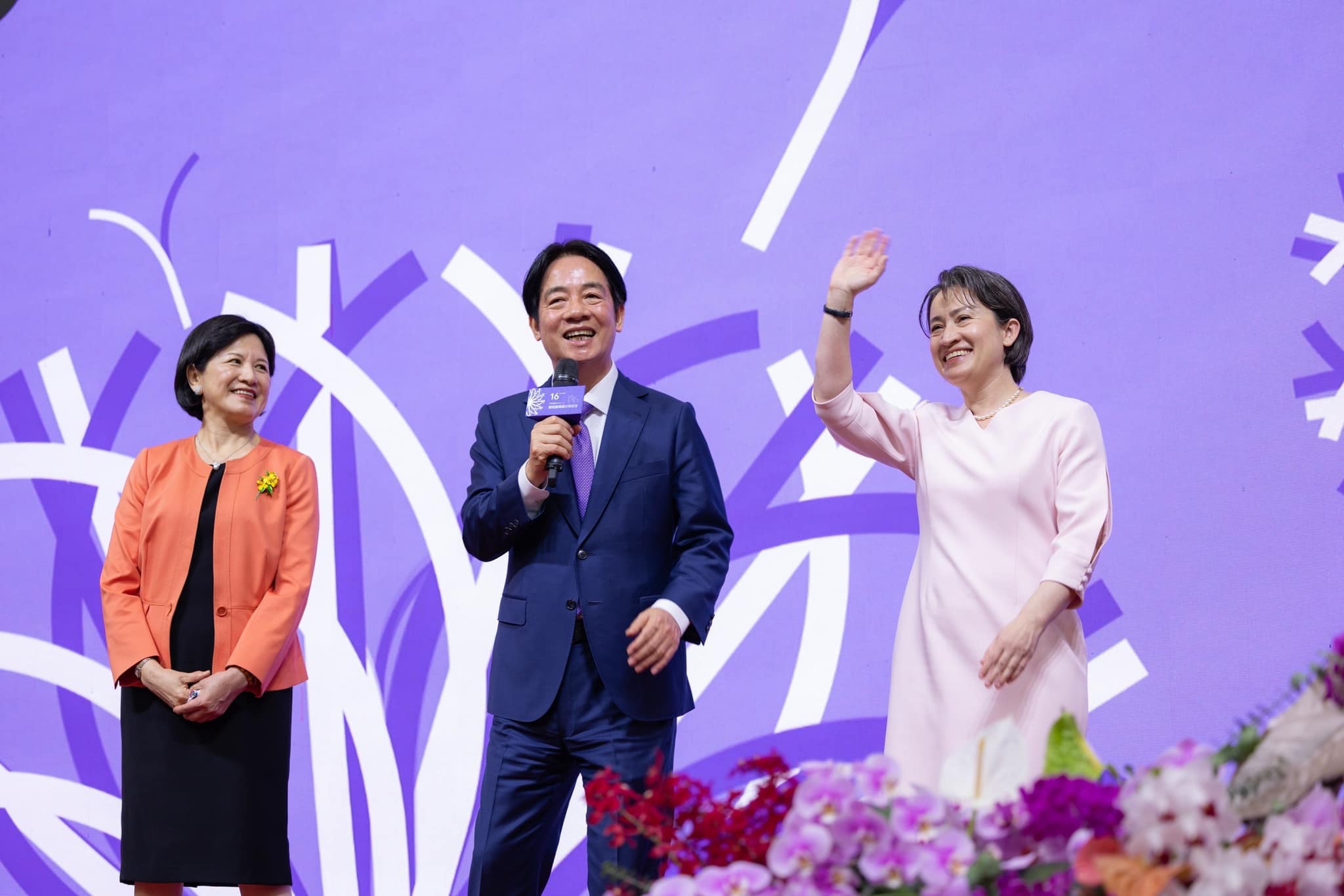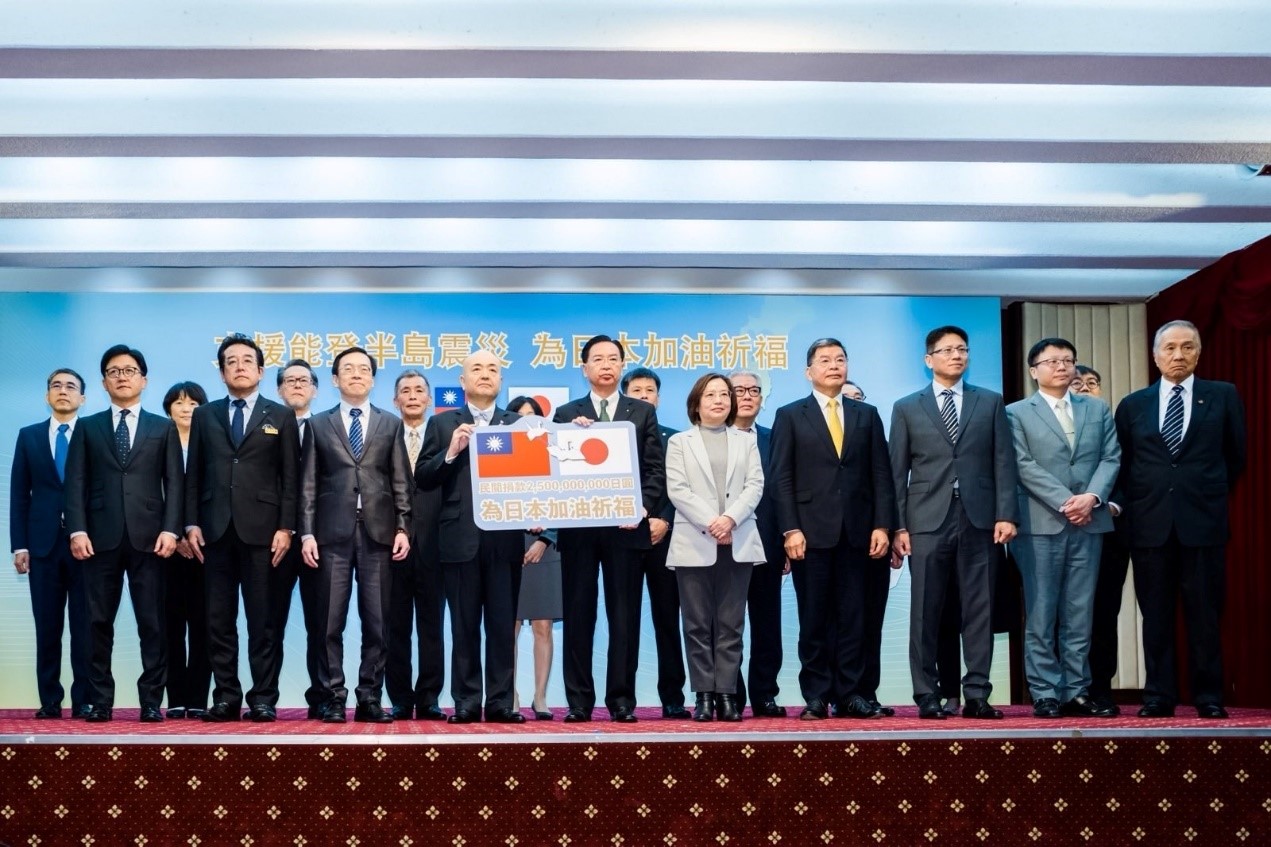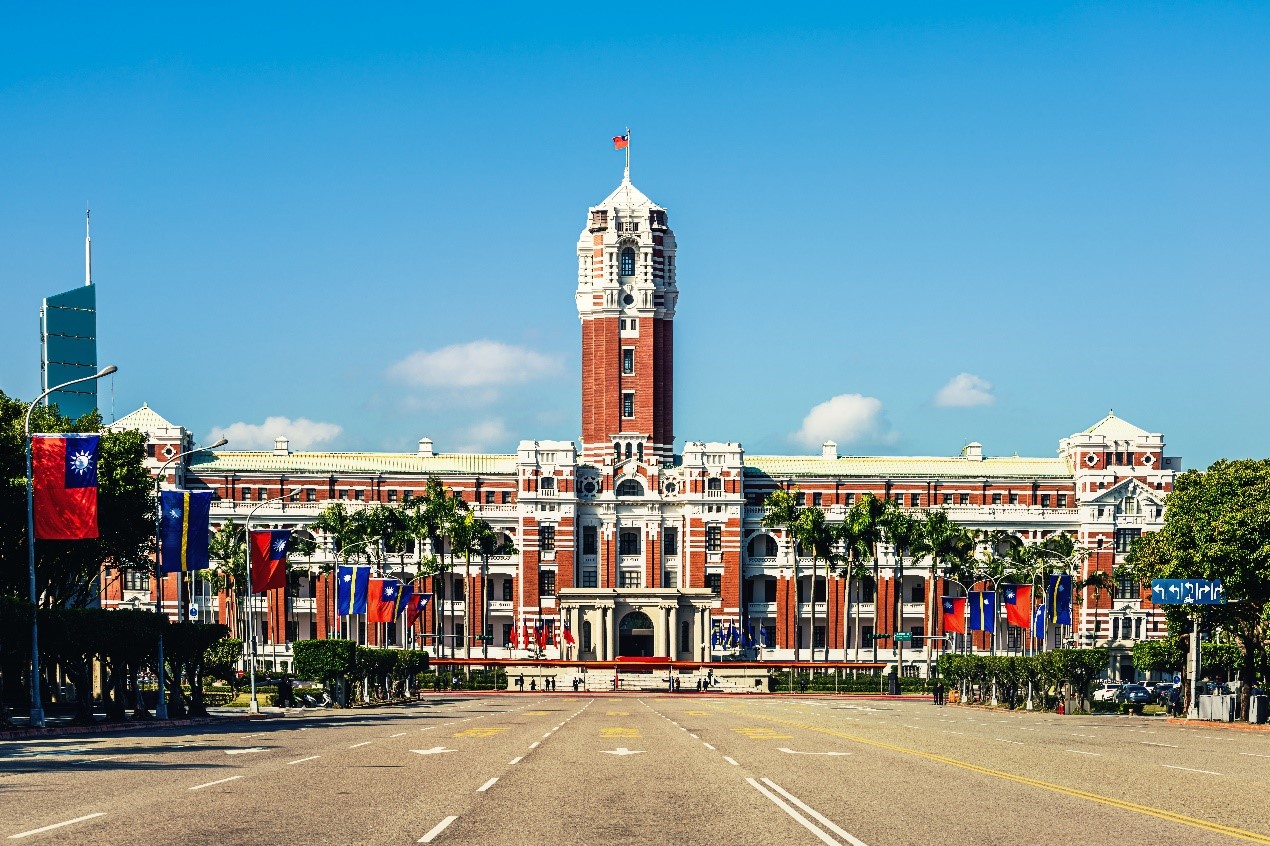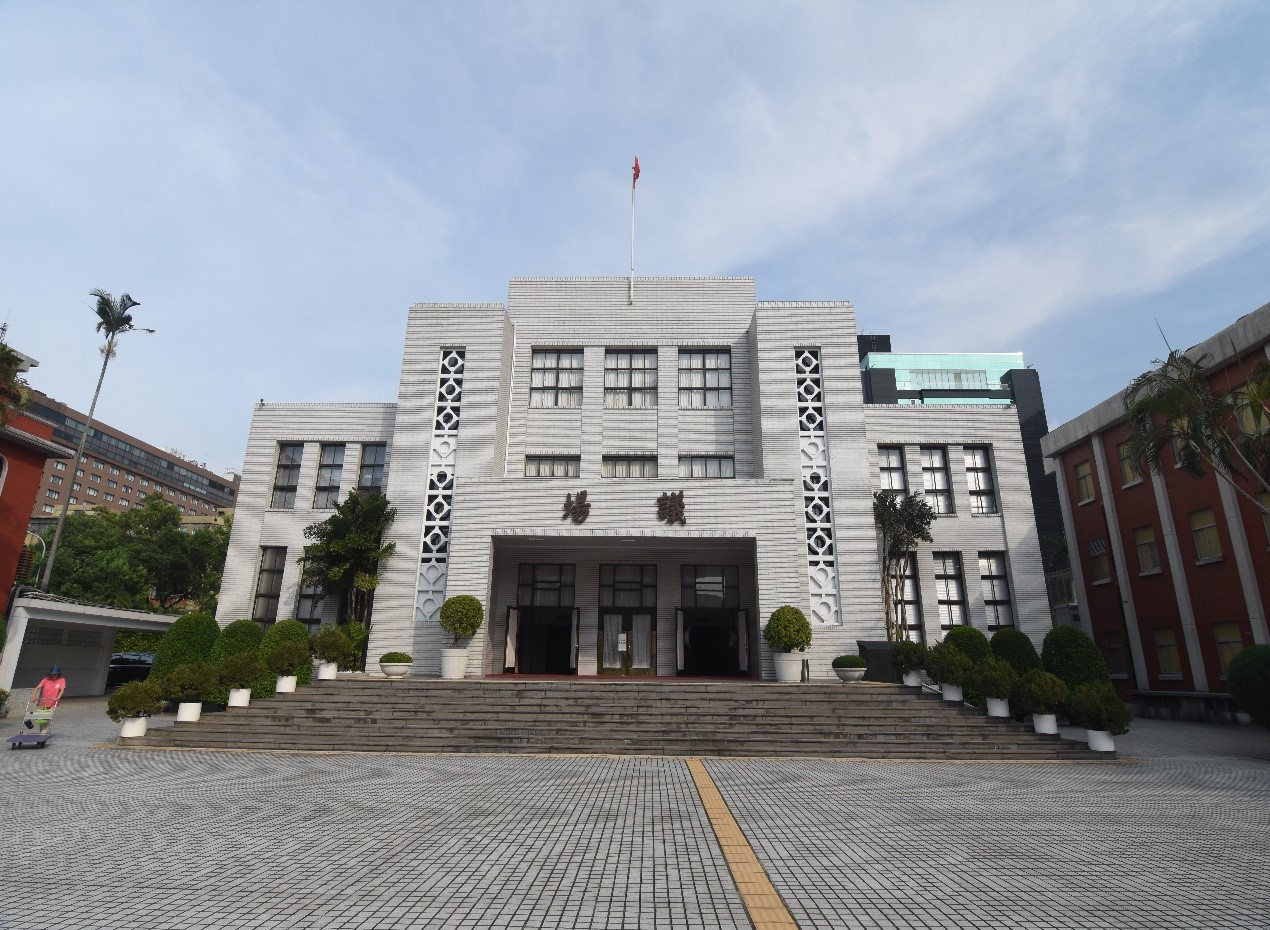One important message from the Ketagalan Forum was the address by President William Ching-te Lai. President Lai proposed a Four-Pillar Peace Action Plan that includes strengthening Taiwan’s national defense, ensuring economic security, promoting partnership with other democracies, and stabilizing the cross-Strait relationship. Picture source: Liu Shu fu, August 21, 2024, Flickr, https://www.flickr.com/photos/presidentialoffice/53936099092/.
Prospects & Perspectives No. 50
Ketagalan Forum 2024:
Highlights and Achievements
By Mumin Chen & Chetananand Patil
Taiwan holds a pivotal role in contemporary Indo-Pacific geopolitics, especially at a time when China’s assertiveness and influence are rapidly expanding in the region. Positioned along crucial maritime routes, Taiwan is a strategic outpost for controlling access to the East and South China Seas, as well as the broader Pacific region. With more than half of the world’s seaborne trade passing through the Taiwan Strait and 90% of advanced semiconductors manufactured in the country, Taiwan is an indispensable partner in economic growth and the security establishment in the Indo-Pacific. However, a potential conflict over Taiwan or surrounding areas, caused by Beijing’s unrealistic ambition to achieving “reunification,” will not only destabilize global trade and security but also threaten democratic states against authoritarianism. Since the Russian invasion of Ukraine in February 2022, Taiwan’s status has become a litmus test for the commitment of the U.S. and its allies to upholding the rules-based international order against Chinese expansionism.
Setting the tone
Against this backdrop, the Prospect Foundation of Taiwan had been organizing the Ketagalan Forum annually since 2017 to encourager exchanges on geopolitical security issues concerning the Indo-Pacific region. The eighth edition of the forum, held in Taipei on August 21, 2024, attracted high-profile delegations from 11 countries, and more than 200 scholars and diplomats from local strategic communities. High-profile dignitaries attending this year’s forum included two former prime ministers, Yoshihiko Noda from Japan and Edward Heger from Slovakia, former U.S. ambassador to the United Nations Nikki Haley, and Pankaj Saran, former deputy national security advisor of India. By inviting prominent leaders from democracies and strategic scholars from leading think tanks to discuss rising security challenges, the Ketagalan Forum has become the largest and most important event in the strategic community in Taiwan.
One important message from the Forum was the inaugural address by President William Ching-te Lai. This was Lai’s first open speech addressing Taiwan’s role in ensuring security in the Indo-Pacific region since his inauguration on May 20. President Lai proposed a Four-Pillar Peace Action Plan that includes strengthening Taiwan’s national defense, ensuring economic security, promoting partnership with other democracies, and stabilizing the cross-Strait relationship. As Lai pointed out, China accounted for 83.8 percent of Taiwan’s overall outbound investment in 2010, but the number has sharply dropped to 11.4 percent last year. Taiwan’s export to China also dropped from 43.1 percent in first half of 2023 to 31.2 percent this year. While Taiwan’s economic dependence with China has been significantly reduced, the government is exploring diversification opportunities with other countries including the U.S., United Kingdom, and New Southbound Policy partner countries. President Lai also reiterated Taiwan’s interest in joining the Comprehensive and Progressive Agreement for Trans-Pacific Partnership (CPTPP) and committed to work with like-minded democracies to build up a democracy supply chain for sustainable development.
Highlighting Taiwan’s role
Three keynote speeches at this year’s forum all concentrated on Taiwan’s significant role in peace and security. Former Japanese PM Yoshihiko Noda’s speech showed how an old friend of Taiwan witnessed the achievements in the Taiwan-Japan bilateral relationship in sectors ranging from technology to tourism. He particularly lamented the exclusion of Taiwan from the international community’s Covid Prevention system, such as Taiwan consistently being denied observer status at the World Health Organization due to Beijing’s pressure. Given Taiwan’s experience in successful Covid-19 management, from which other countries could learn important lessons, Noda said “Taiwan’s exclusion is not good for global health management system.”
A senior leader from the opposition camp, Noda’s message showed solidarity across major parties in Japan in support of Taiwan. For his part, former PM Heger shared his experiences on how a small democratic state fought against growing pacifism and fake news in Europe. Drawing on his experience during the Russia-Ukraine war, the former Slovak PM called for unity among democratic nations to counter disinformation campaigns unleashed by authoritarian regimes and to support Taiwan’s effort to maintain peace and security in the Indo-Pacific region. He also expressed his gratitude for the Taiwanese government and hailed Taiwan’s attitude of seeking mutual benefit demonstrated during the Ukraine war by supporting the Slovak government in addressing the refugee crisis.
Former ambassador Haley expressed her strong support of Taiwan’s full membership in international organization: “We should stand with Taiwan today, not wait until China invades. If we take the necessary steps now, China will think twice about starting a war.” She added, “You should no longer be silenced in global affairs. Given the strength of your freedom and democracy, you should be empowered to speak.”
Democratic unity in countering authoritarianism
Three expert panels then addressed peace and security in the Indo-Pacific from three different perspectives. During the first session on Security in the Taiwan Strait, the panelists analyzed the causes, nature, and effects of China’s grey zone tactics. The discussions brought diverse perspective attributing Beijing’s pursuit of a grey zone warfare strategy to political necessity, strategic preference, and psychological warfare against Taiwan. With a broad consensus on countering China, the panelists recommended close bilateral and multilateral cooperation with Taiwan, including in the domain of information exchange, defense partnerships and intelligence sharing.
Turning to economic aspect of security, the panelists from the Economic Security and Coercion session expressed concerns regarding the world’s economic overdependence on China and emphasized the need to adopt effective strategies such as reshoring, diversification, export control and investment screening to strengthen supply chain resilience. As a global fallout of semiconductor supply-chain disruption would risk affecting many countries, the panelists urged Taiwan, the U.S. and other democracies to strengthen international cooperation to navigate through the challenges emanating from both interdependence and diversification.
The third and last session on Practice and Challenges of Digital Democracy examined the rise of disinformation and misinformation networks leading to digital authoritarianism. All panelists expressed concerns over the rapid advancement digital technology facilitating the spread of false information targeting financial infrastructure, public trust, and aimed at undermining democratic resilience. Speakers also pointed those authoritarian regimes, mainly China and Russia, are exporting new surveillance technologies to other countries, contributing to an alternative global digital infrastructure based on citizen surveillance. To counter these challenges, the panelists suggested effective media regulations, a designated overarching authority to monitor information flow, partnership with democratic countries and public education.
While strategic communities around the world have paid more attention to the security of Taiwan and expressed concerns over a potential military conflict in the region, the people and government of Taiwan are actively voicing out their commitment to ensuring peace and security. As Deputy Foreign Minister Ambassador C.K. Tien observed in his closing remarks, Taiwan has always been a force for good in world politics. The Ketagalan Forum is not only an annual international seminar discussing security issues in the Indo-Pacific, but also a global opinion forum guiding Taiwan as it pursues a new value-based diplomacy centered on building a democratic alliance, alliance diplomacy centered on ensuring regional peace and security, and economic diplomacy centered on promoting common prosperity.
(Mumin Chen is a former deputy representative of Taiwan to India and currently Professor and Vice Dean, College of Law and Politics, National Chung Hsing University. Chetananand Patil is Ph.D. Scholar from Political Science Department, University of Mumba.)



